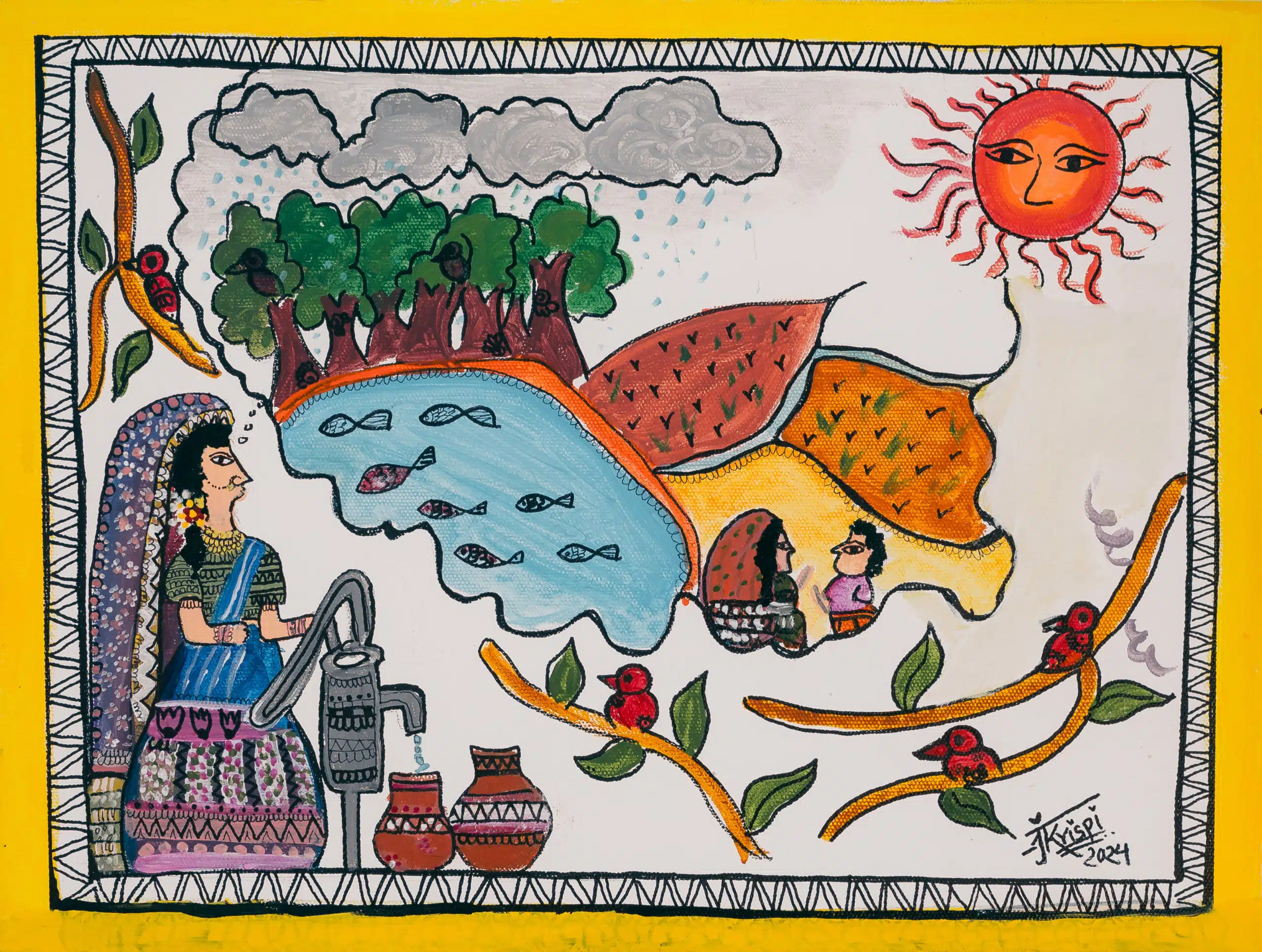Media Centre - Media release - 11 December 2019
New research finds climate has a devastating impact on girls, yet they are excluded from the conversation

Media contact: Claire Knox, 0452 326 549 / [email protected] – images and case studies are available.
As world leaders, scientists, business leaders and climate activists, including 16-year-old Greta Thunberg, converge in Madrid this week for the 2019 UN Climate Change Conference (COP25), a new report has revealed girls’ rights are being ignored in national climate strategies and policies.
The study, titled Girls’ Rights in Climate Strategies, was launched today at COP25 by the charity for girls’ equality, Plan International.
Plan International’s study, which was undertaken alongside Brookings Institution and UNICEF, found:
• only three of 160 Nationally Determined Contributions (national plans for meeting agreed global targets on emissions and adaptation) and 13 National Climate Adaptation Plans mentioned girls, while just one mentioned girls’ education;
• while 43% of countries referenced women or gender, it was largely in the context of women as a vulnerable group rather than their contribution to climate change mitigation or adaptation;
• only seven Nationally Determined Contributions reference children or youth as stakeholders who should be included as decision makers or in climate action;
• not one Nationally Determined Contribution formally recognises the contributions that investment in girls’ education could make toward their climate strategy.
Plan International is calling for governments, policy-makers and wider society to ensure girls are included in climate action.
Hayley Cull, Director of Advocacy at Plan International Australia, said that while women and girls were leading the charge in climate action, they were being denied a seat at the decision-making table.
“Girls are powerful agents of change, yet their rights are not being considered in global climate strategies,” Ms Cull said.
“The global climate movement is being powered by inspiring girl activists including Greta Thunberg, yet governments barely consider their rights. Climate action without children and young people will fail to tackle the climate crisis today and will create bigger challenges in the future.”
It is girls – and especially those from the most vulnerable and poorest communities – that are hardest hit by climate change, she added.
“We know climate change magnifies the inequalities girls already suffer, like poor access to sexual reproductive health and education, child marriages, early pregnancies, violence and human trafficking.
“In times of crisis, girls from marginalised communities in the least developed countries are often the worst hit. They’re the first to drop out of school to help their families earn money, to tend to domestic duties or look after relatives, and face an increased risk of exploitation, and abuse.
“This is incredibly unfair because those who will be most affected by climate change are the ones who have contributed least to the problem.
“Despite the fact that girls’ education is one of the most powerful ways to combat climate change, the lion’s share of national climate strategies concentrate on technological fixes, ignoring social concerns and the contributions that people, particularly girls and young women empowered by education and information, might make.”
The research also found that completing a quality education and being able to freely control their sexual and reproductive health empowers girls to contribute to more resilient and adaptable societies and greener economies.
“Girls play a vital role in the solution to climate change. Educating girls is one of the most effective, and most overlooked, ways to mitigate climate change. In fact, for every year a girl stays in school, her country’s climate resilience measurably improves,” Ms Cull added.
Plan International is currently attending COP25, the 25th United Nations Climate Change conference in Madrid, to influence and partake in discussions on children’s rights – especially girls – in the climate crisis, and to make sure that the specific risks girls face are being addressed.
Girls and climate change: context
Climate change is the most significant intergenerational equity issue of our time. Children and future generations are bearing, or will come to bear, the brunt of its impact on a polluted, degraded planet.
Yet the social and regional impacts of climate change are not distributed equally or evenly. Research shows that climate change magnifies the inequalities girls already suffer, such as their unequal access to sexual reproductive health and education, child marriages, early pregnancies, violence and human trafficking.
The impact on them is compounded by their lack of access to the information and resources which might help them adapt and cope. As international policy makers and national governments struggle to combat the climate crisis, the human rights of those most at risk and largely unrepresented are easily ignored.
Read the full Girls’ Rights in Climate Strategies report here.
Read more in Plan International’s July 2019 report on how climate change threatens girls’ rights here.
Plan International Australia is calling for the following actions:
• Invest in girls’ education and ensure they have access to the necessary information, training and skills they will need now and in the future.
• Encourage girls’ leadership and include them in the development, implementation and monitoring of nationally determined contributions and national adaptation plans.
• Deliver climate justice.
About Plan International Australia
Put simply, we’re the charity for girls’ equality. We tackle the root causes of poverty, support communities through crisis, campaign for gender equality, and help governments do what’s right for children and particularly for girls. We believe a better world is possible. An equal world; a world where all children can live happy and healthy lives, and where girls can take their rightful place as equals.
Media contacts


